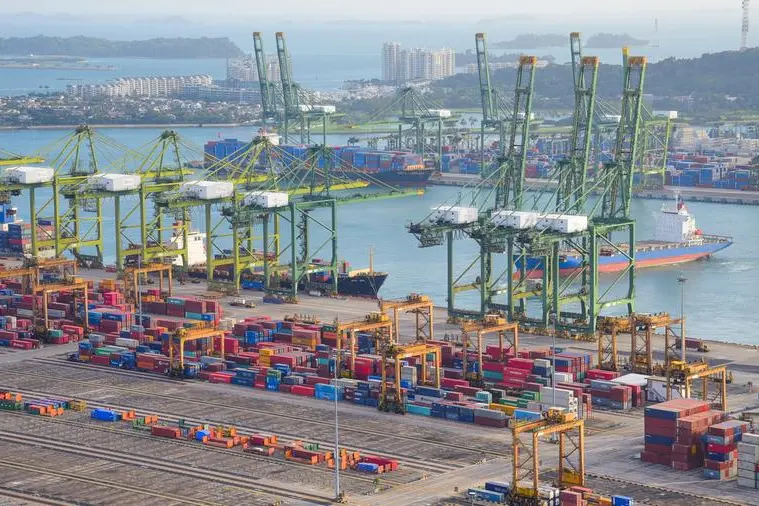PHOTO
The Philippine export sector remains the biggest drag to economic expansion as it takes a hit from the slowdown in major trading partners, according to a unit of Fitch Solutions.
In a report, BMI Country Risk and Industry Research said economic momentum this year would be driven mostly by the domestic sector, particularly on consumption and investment activities.
The research arm of the Fitch Group said hitting the gross domestic product (GDP) growth target of 6.5 to 7.5 percent might not necessarily be a walk in the park given a challenging external environment.
'The external sector will remain the economy's biggest area of weakness. A further slowdown in global growth makes a turnaround in export performance increasingly unlikely,' BMI said.
'Like many of its regional peers, a deteriorating external demand picture will exert the biggest drag on the Philippines' economy,' it said.
The country's total merchandise exports contracted by 7.6 percent to $73.52 billion in 2023 from $79.57 billion in 2022.
BMI maintained that a rebound is unlikely given that global growth is also seen slowing down to 2.2 percent from last year's 2.6 percent.
The country's export performance remains heavily reliant on global economic scenarios.
For instance, a third of the country's total exports goes to the US and China.
'The Philippines' major trading partners are also facing significant headwinds of their own. A shallow recession in the US and a poorer economic outlook in mainland China bodes poorly for the external sector,' BMI said.
China, for one, is seen suffering a slowdown over the next few years amid its low productivity due to an aging population.
The world's second largest economy also continues to bear the brunt of a debt crisis in its property sector, coupled with ongoing geopolitical tensions.
The US, on the other hand, is still seeing fragility in its labor market.
Nonetheless, BMI noted that slowing inflation would help boost household spending and contribute to overall economic growth.
BMI said inflation would likely fall within the target band of two to four percent for most of 2024, offering some respite for real household incomes after a challenging 2023.
The Fitch Solutions unit emphasized that monetary policy easing would support investment activities this year.
'Significant strides in the Philippines' disinflation process reduce the need for the central bank to lean toward additional tightening to anchor inflation expectations,' BMI said.
'Our view is for cuts to begin in earnest in the second half which is one reason why we have penciled in an acceleration in investment growth in 2024,' it said.
Since May 2022, the Bangko Sentral ng Pilipinas has raised interest rates by 450 basis points to tame inflation and stabilize the peso.
Copyright © 2022 PhilSTAR Daily, Inc Provided by SyndiGate Media Inc. (Syndigate.info).





















